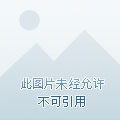The Humanistic Archaeology Bookstore is located in a secluded alley on Sanhuqiao Road in Haidian District, Beijing, the façade is very inconspicuous, the decoration of the store is simple, a total of 125 square meters of two rooms are filled with 103 bookshelves more than three meters high, and only one person is left between the bookshelves, which is particularly narrow. The shelves are all pottery, jade, statues, bronze, murals and other themes of archaeology and literature professional books, and a couplet hanging on the side reads "I want to know the ancient things outside the body, and read thousands of books in the store." At present, there are more than 10,000 kinds of books in the store and more than 60,000 volumes.

The Humanistic Archaeology Bookstore opened in 2012 and opened an online store in 2013, where Hong Xia, who was still in college, worked part-time and officially became the manager of the bookstore since 2018. Hong Xia is a master's degree in historical literature, and her studies involve versionology, bibliography, etc., which have direct help in operating archaeology bookstores, such as selecting books and recommending books, it is easy to judge which version is better, and the accumulation of practice for many years has made her know the relevant books well. Once, Meng Fanzhi, a researcher at the Institute of Humanities and Social Sciences of Peking University, called to find a set of books involving inscriptions, but could not say the title of the book, only based on the simple description of the other party, Hong Xia quickly told him that it was the "Beiping Research Institute Beiping Temple Survey Data Compilation" compiled by the Chinese Academy of Cultural Heritage, which currently has a total of five volumes, which is amazing.
"Our bookstore is a place where readers can find new books and find information." In addition to contacting archaeology-related publishing houses across the country to select new bibliographies every day, Hong Xia also has to compile statistical book news and publish it in a timely manner to the bookstore's WeChat public account, Weibo and readers' subscription mailboxes. She also used her professional advantages to sort out the bibliography, sort out some topics, and has already done monuments
Bibliographies in engravings, epitaphs, ceramics, bronzes, and this year we have made bibliographies on murals and grottoes so that we can always take out suggestions when others need them.
"Archaeological books are very informative, and the readers who come to the store are basically coming for the information. I have to take responsibility for them. Hong Xia explained that the magic weapon for bookstores to attract professional readers is not limited to a complete collection of books. In addition to book news, bookstores also publish book lists on specific topics from time to time, which are equivalent to references, saving scholars and research teams a lot of time to find related books. The bookstore's bibliography is subdivided horizontally from archaeological excavation reports, monographs, anthologies to phylogenetics, ceramics, oracle bones, Silk Road studies, etc., and vertically is the books in the bookstore over the years, and the latest books are listed every month and every year. Hong Xia said that the earliest book list in the store was a paper edition, which began with only a dozen pages and had more than 200 pages by 2017. Today, book lists are given to book buyers in electronic form.
In addition, in order to facilitate scholars, bookstores provide one-on-one closed-loop services from the selection of book lists, price checking, delivery, and subsequent accurate recommendations. When readers ask about books that are not available in the store, the bookstore can also help buy them. "A lot of people are interested in us when they see the books in the online store first." Hong Xia said that many scholars and research institutions have become customers of bookstores, relying on word of mouth, bookstores are familiar and recognized by more and more insiders, and some overseas archaeologists have also found bookstores through the introduction of Chinese counterparts. Some research institute heads have changed several stubbles, and archaeology bookstores have always been their first choice for buying books. "The archaeological circle was originally not large, and now the bookstore is almost unknown in the circle."
During the epidemic last year, there was less work in the store, if you only open an online store can save 250,000 yuan in rent per year, but Hong Xia figured out the meaning of the existence of the physical store, "If the physical store is closed, what will the readers who want to read books and check the information do?" Books are not only commodities, but also valuable in being read by more people. Hong Xia said that the circulation of archaeological professional books is generally relatively small, and very expensive, so sometimes it is not easy to find, these books you put out, there are people in need to see, so she should insist on opening a physical store, and even in the future when conditions permit, she also plans to expand the bookstore space, increase the "library reading" function, so that the hundreds of out-of-print archaeological books collected in the store have the opportunity to be seen and used by more people.
Text/Beijing Youth Daily reporter Li Ning
Editor/Li Xiaomeng